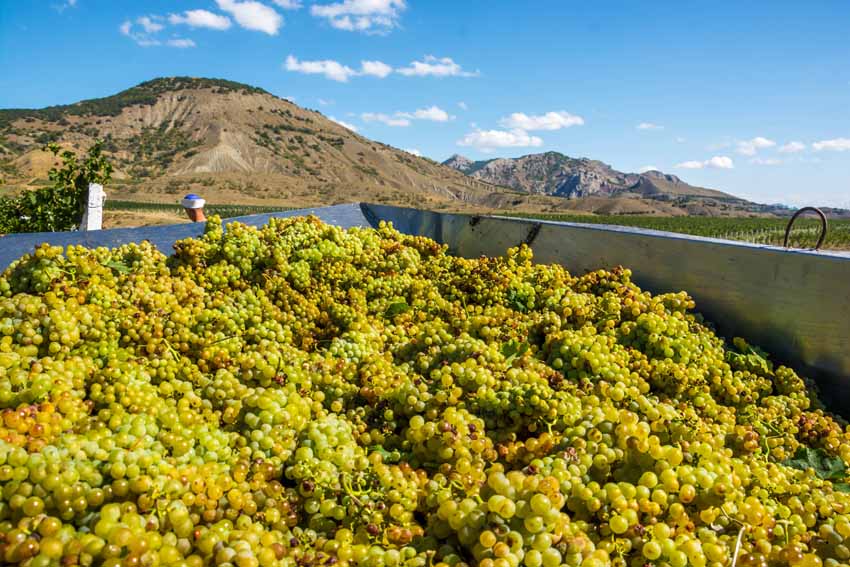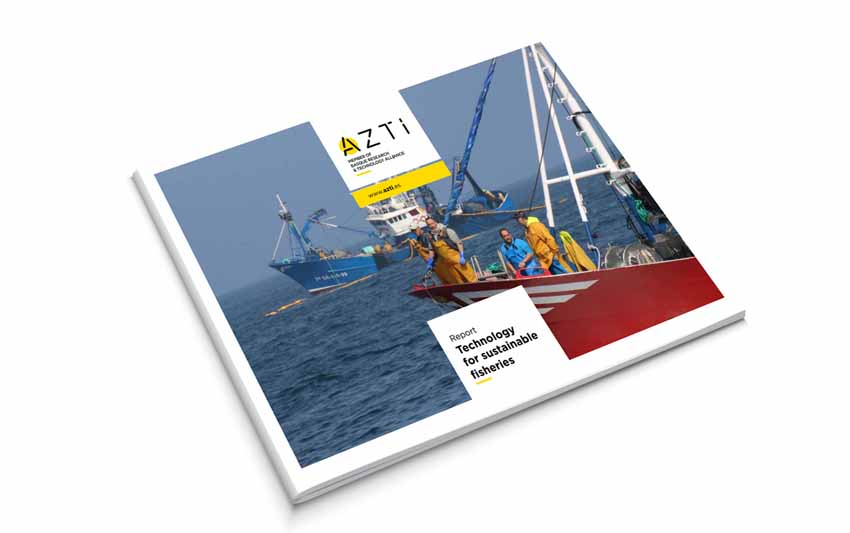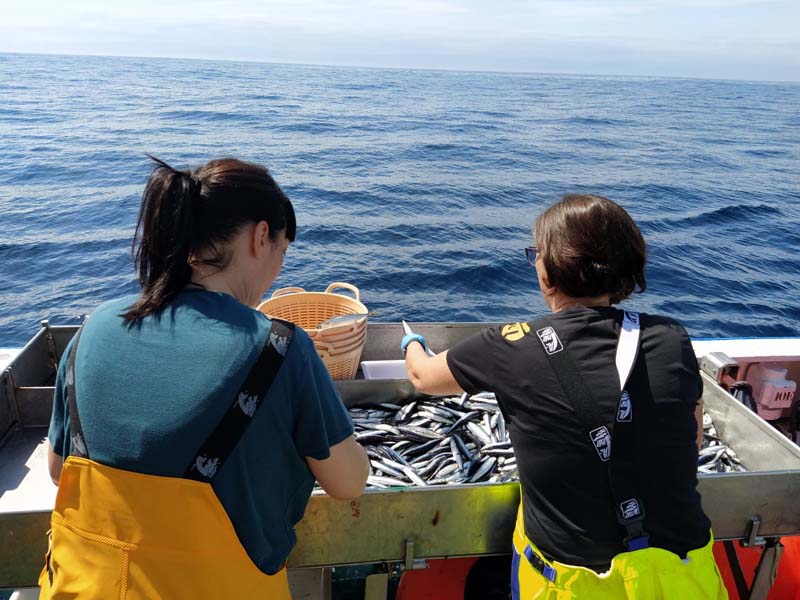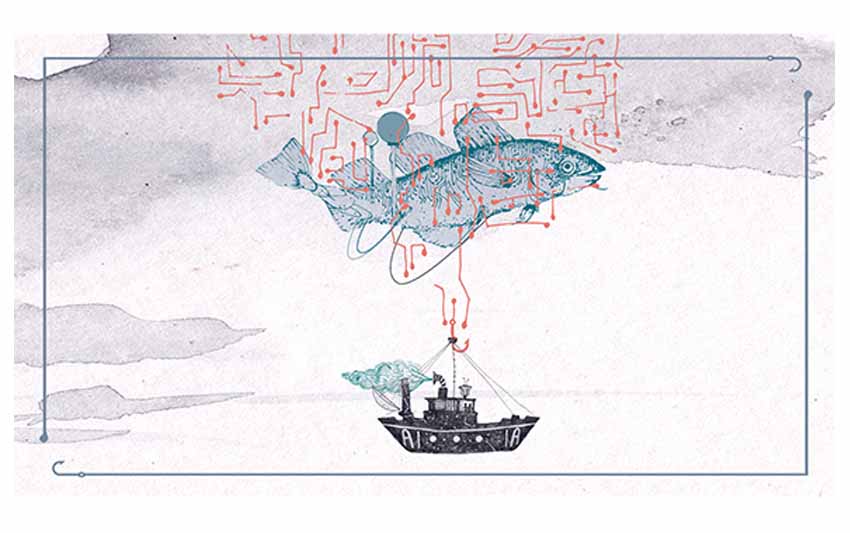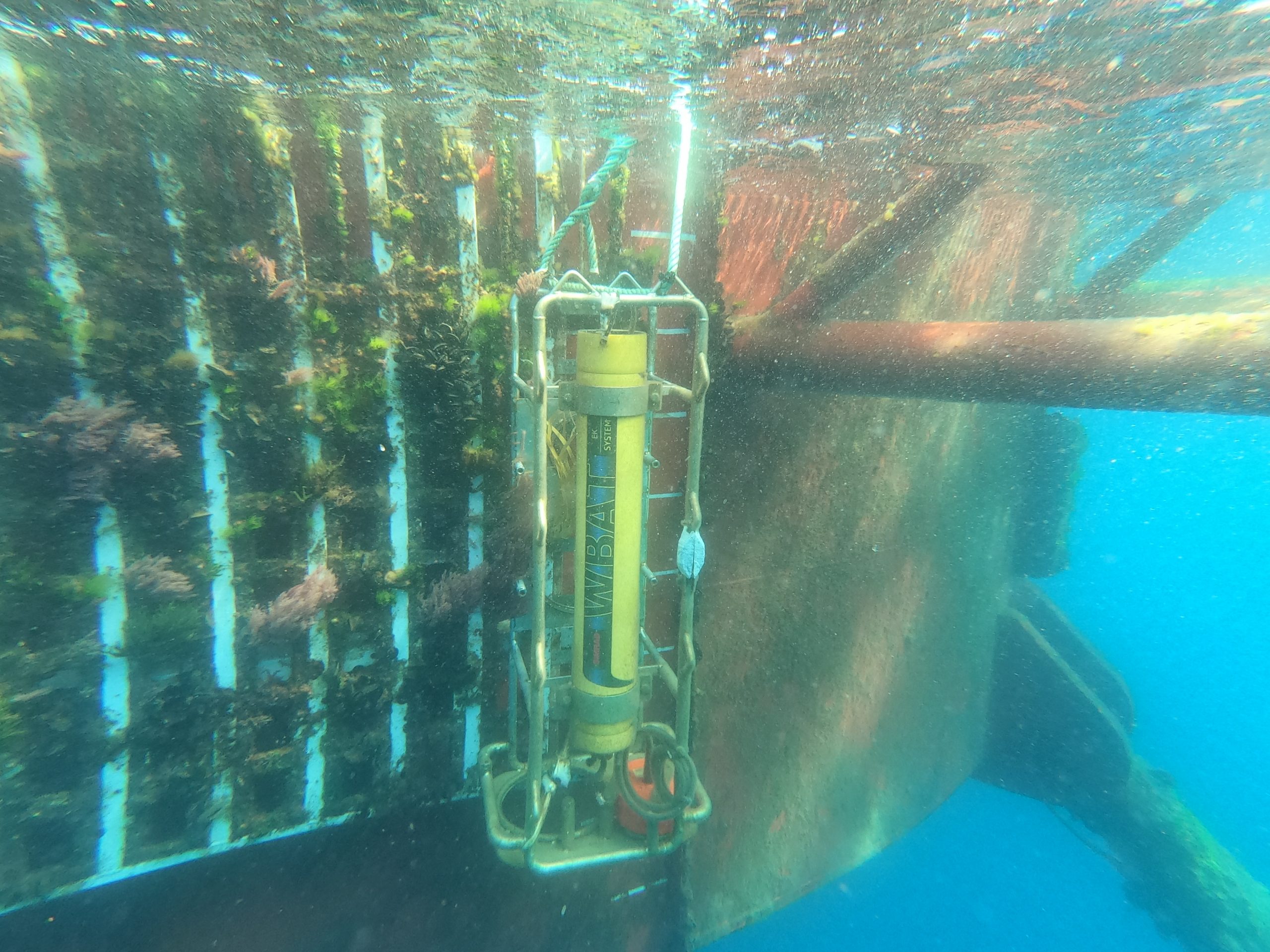#ebegi: the coastal observatory of the future to move towards the blue economy and fight against climate change impact on the coast
Últimas noticias
Una mirada LGTBIQ+ al reino animal
Circular Economy in Action: Valorisation of By-products through Projects like PRIMA NEWFEED
Strategic Perspectives: Highlights from the Food4Future World Summit for Business Leaders
- AZTI technological center has launched the #ebegi project, which aims to strengthen the observation capacities of the coastal ecosystem in the southeast of the Bay of Biscay.
- High-quality marine observations and reliable, harmonized and accessible data are a prerequisite for integrated management of marine ecosystems to move towards the sustainable transformation of the blue economy and to address the consequences of climate change in coastal urban areas.
- Along the lines of the need to enhance integration, enabling multiplatform and multidisciplinary approaches, and data provision in the era of digital twins, the #ebegi project, funded by the Basque Government, has developed a tool that allows easy discovery of available marine information and serves as a basis for the development of new solutions for our coasts.
Pasaia, May 3, 2023- AZTI technology center, which has been playing a key role in the observation of the Bay of Biscay, the Basque Country coastal area and the marine ecosystem for years, is working on strengthening observation capabilities in the southeastern Bay of Biscay, through the #ebegi project, funded by the Basque Government.
Within the framework of this initiative, AZTI has developed a new online technological application whose objective is to make visible, in a single platform, all the key existing information on the marine environment and which is the result of the oceanographic campaigns carried out by AZTI and the existing coastal observation systems in the area. This online application is also a first step to identify needs for new observation systems, new data or simply new ways of analyzing the information we have for a better characterization of the marine environment and its changes.
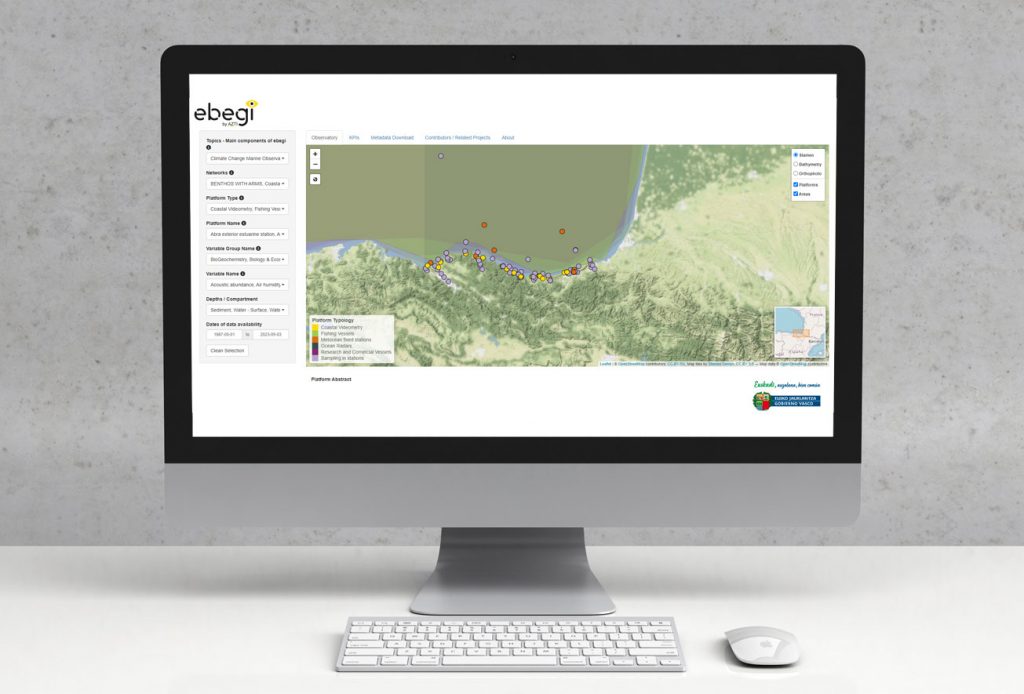
Thanks to these efforts, it is now possible to provide a more complete view of the existing information, both historical and in real time, which can be of key use to public administrations, the scientific and research community, fishing and industrial stakeholders and society in general.
“With a simple click, the user obtains information on the locations and periods in which there is data on sea level, temperature, water pH, waves, and other physical, chemical and biological variables in the area of interest, without having to consult different sources, simplifying and speeding up the first step towards the collection of the necessary data for informed decision making,” says Anna Rubio, AZTI oceanography expert and project coordinator.
#ebegi also works to improve the quality of existing data and ensure that it is easily accessible, interoperable and reusable, so that this information contributes to the digitization of the oceans.
“#ebegi not only contributes to improving communication and coordination between the different actors and administrations, but also to the promotion of sustainable ecosystem management of fishing activity and coastal areas,” adds Rubio.
Boosting the blue economy and combating the impact of climate change
The final objective of this application is two-fold. In the first place, to facilitate the development of policies and directives based on the blue economy, which advance in the more sustainable exploitation of the seas and their resources, boosting economic activity and social development.
In second place, to advance in the search for solutions to the challenges associated with climate and global changes that will make it possible to anticipate the effects of rising sea levels and extreme waves, such as flooding due to a combination of waves and meteorological and astronomical tides, coastal erosion and morphological changes in estuaries.
To increase the key information needed for a better understanding of the marine environment and its changes, the project also includes technological innovation and experimentation to identify and test state-of-the-art ocean observation methodologies, including the use of autonomous surface vehicles and gliders (small autonomous submarines).
With these tasks, #ebegi capitalizes on the efforts and work led by AZTI in recent years through local and international initiatives such as the EuskOOS Coastal Operational Oceanography System, the Climate Change Observatory, the Network for the Assessment of the Ecological Quality of Transitional and Coastal Waters or the Multidisciplinary Ecosystem Campaigns.
The #ebegi project has been funded by the Vice-Ministry of Agriculture, Fisheries and Food Policy of the Ministry of Economic Development, Sustainability and Environment of the Basque Government and has contributions in coastal zone observation from the Basque Meteorological Agency, Euskalmet, the Basque Water Agency-URA and the Naturklima Foundation of Gipuzkoa, among others. In addition, it is aligned with the lines of work of various European and international projects and initiatives that seek to promote integrated coastal observation strategies such as: the European coastal research infrastructure JERICO-RI; the European ocean observation organization EuroGOOS; the Eurosea ocean observation and forecasting data collection project; and the Copernicus Coastal Services provision.
